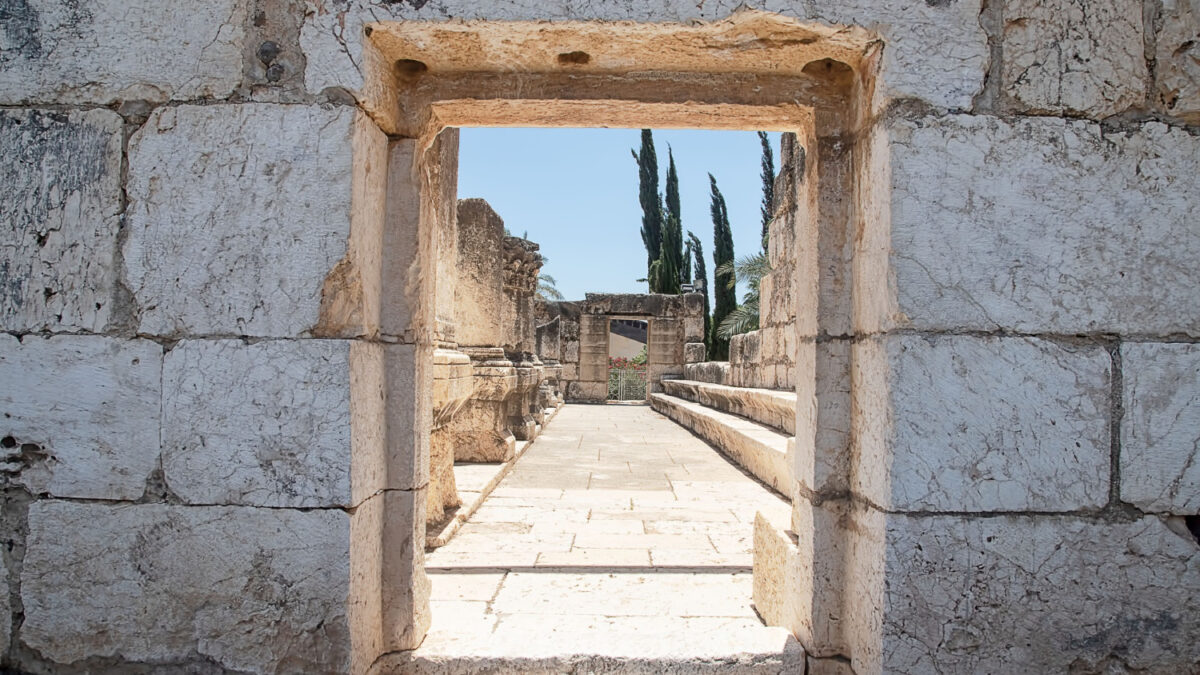
Historical Evidence of the Gospel Account: Herod and John the Baptist
Flavius Josephus
In the year 37 AD a Jew named Joseph was born. He grew up to become a General in the Jewish forces. During the Jewish-Roman war (66-70 AD), General Joseph and the Jews were defeated by the Romans at Galilee. Joseph then defected to the Romans and remained on their side till his death in 100 AD. He took the name Flavius Josephus, and after the war, he became a historian, recording the events of the war, as well as recording the whole history of the Jewish people. His history of the Jews certainly corroborates all of the Old Testament text, but as a man living in the first century and recording history, I would be interested to know if he says anything about Christianity.
Now we shouldn’t expect much from Josephus, as the subject of Christ and the church is not really on his radar; he mostly concerns himself with political rulers and Jewish radical groups (fighting against Rome and other radicals) of the first century. To an unbelieving Jew, Jesus is not much more than any other false messiah, of which there were plenty of, and therefore would not be a subject of discussion for a Jewish historian. The Jews are known to not make records of those who came along who claimed to be the messiah. Nevertheless, Josephus does corroborate with the gospel account in a number of things. His writings include a number of figures that the Bible also speaks of, like King Herod, Pontius Pilate, Agrippa, Felix, and Festus. Josephus’ detailed record of the destruction of Jerusalem in 70 AD is also evidence of the accuracy of Jesus’ prophecies in Matthew 24, Luke 21, and other places. However, here we will focus on his writings about John the Baptist, James the brother of our Lord, and Jesus, Himself. Yes, Josephus does in fact write about Jesus and other New Testament figures, making his writings an important piece of evidence for the historical truth of the gospel account.
John the Baptist
Josephus, in his book “Antiquities of the Jews,” gives an account of John the Baptist, who he was, and how he died. In book 18, chapter 5, Josephus gives his account. While it is too long to quote here in its entirety, I’ll do my best to give the proper sense of the text.
Josephus begins by describing the problem of the Herodian family; how Herod, a ruler of the Jews, was long married to daughter of the king of Arabia, but while visiting his brother’s house in Rome, he fell in love with Herodias, his brother’s wife, and sister of King Agrippa. They made plans to wed and for Herod to divorce his current wife. Upon secretly finding out, his wife traveled to her father, King of Arabia, who readied his army against Herod. Herod also mustered up his troops and they two armies were sent into battle. The army of Herod, however, was completely annihilated by fugitives who had allied themselves with the kind of Arabia. Josephus then inputs that “some of the Jews thought that the destruction of Herod’s army came from God, and that very justly, as a punishment of what he did against John, that was called the Baptist: for Herod slew him, who was a good man, and commanded the Jews to exercise virtue, both as to righteousness towards one another, and piety towards God, and so to come to baptism; for that the washing with water would be acceptable to him, if they made use of it, not in order to the putting away or the remission] of some sins only, but for the purification of the body; supposing still that the soul was thoroughly purified beforehand by righteousness. Now when [many] others came in crowds about him, for they were very greatly moved [or pleased] by hearing his words, Herod, who feared lest the great influence John had over the people might put it into his power and inclination to raise a rebellion, (for they seemed ready to do any thing he should advise,) thought it best, by putting him to death, to prevent any mischief he might cause, and not bring himself into difficulties, by sparing a man who might make him repent of it when it would be too late. Accordingly he was sent a prisoner, out of Herod’s suspicious temper, to Macherus, the castle I before mentioned, and was there put to death. Now the Jews had an opinion that the destruction of this army was sent as a punishment upon Herod, and a mark of God’s displeasure to him.”
Josephus unknowingly corroborates with the New Testament text when recording these events of Herod. In fact, Josephus even bring his own opinion in, agreeing with some of the other Jews that it was God’s justice bringing defeat upon Herod for what he did to John, who was called the “Baptist” (i.e. the dipper). He also goes into considerable detail about John, the reception of John from the Jews, and even the teachings of John. Josephus presents us with these facts: 1). John preached a baptism of purification after the remission of sins made possible through repentance; 2). Many followed John and were greatly influenced by him; 3). John had spoken against Herod’s adulterous relationship, and Herod knew about it; 4). Herod had John placed in prison so as to keep John from influencing the Jews against Herod; 5). Herod later had John executed.
Biblical Parallels
All four gospel accounts give witness to John the Baptist (Matthew 3, Mark 1, Luke 3, and John 1). The gospels also explain that John preached “a baptism of repentance for the remission of sins” (Mark 1:4), that is, that he instructed the Jews to demonstrate their repentance, turning back to the Law of Moses, by the act of baptism. Both the gospel and Josephus record that John taught remission of sins was through becoming faithful again to the Law. This was before the baptism that Jesus brought under the Law of Christ, and was strikingly different in purpose (Acts 2:38; Acts 19:1-4).
The gospel and Josephus both speak about the great reception of John’s teachings. Matthew records that“Jerusalem, all Judea, and all the region around the Jordan went out to him and were baptized by him in the Jordan, confessing their sins” (3:5-6).
The gospel also records that John knew of Herod’s adulterous relationship, and had called him out on his sin. Herod responded by imprisoning John. Consider is said in Mark 6:17-20, “For Herod himself had sent and laid hold of John, and bound him in prison for the sake of Herodias, his brother Philip’s wife; for he had married her. Because John had said to Herod, “It is not lawful for you to have your brother’s wife.” Therefore Herodias held it against him and wanted to kill him, but she could not; for Herod feared John, knowing that he was a just and holy man, and he protected him. And when he heard him, he did many things, and heard him gladly.”
Lastly, the scriptures also record that it was Herod that had John executed (Mark 6:21-29). Herodias was the driving force behind the death of John, as she held a grudge against him for speaking out against her relationship with Herod. So at Herod’s birthday party, she sent her young daughter in to dance. Josephus also speaks of the daughter of Herodias, named Salome, who was a newborn when she divorced her husband to marry Herod (18.5.4). This pleased the most likely drunken King Herod and he offered this little dancing toddler anything she wanted, up to half the kingdom. I suppose Herod thought she’d ask for a new doll or a bucket of gumballs, but she was versed by her mother to ask for the head of John on a platter. Much to the dismay of Herod, he had to keep his word and had John beheaded.
All in all, Josephus’ record of John the Baptist is an important witness to the validity of the New Testament scriptures, and its authenticity has been confirmed by scholars and critics alike.
Article by Tanner Campbell
